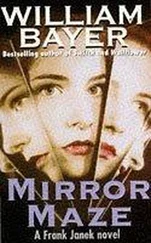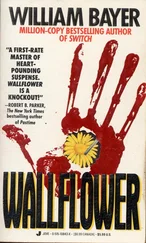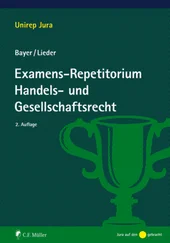William Bayer - Tangier
Здесь есть возможность читать онлайн «William Bayer - Tangier» весь текст электронной книги совершенно бесплатно (целиком полную версию без сокращений). В некоторых случаях можно слушать аудио, скачать через торрент в формате fb2 и присутствует краткое содержание. Жанр: Криминальный детектив, на английском языке. Описание произведения, (предисловие) а так же отзывы посетителей доступны на портале библиотеки ЛибКат.
- Название:Tangier
- Автор:
- Жанр:
- Год:неизвестен
- ISBN:нет данных
- Рейтинг книги:5 / 5. Голосов: 1
-
Избранное:Добавить в избранное
- Отзывы:
-
Ваша оценка:
- 100
- 1
- 2
- 3
- 4
- 5
Tangier: краткое содержание, описание и аннотация
Предлагаем к чтению аннотацию, описание, краткое содержание или предисловие (зависит от того, что написал сам автор книги «Tangier»). Если вы не нашли необходимую информацию о книге — напишите в комментариях, мы постараемся отыскать её.
Tangier — читать онлайн бесплатно полную книгу (весь текст) целиком
Ниже представлен текст книги, разбитый по страницам. Система сохранения места последней прочитанной страницы, позволяет с удобством читать онлайн бесплатно книгу «Tangier», без необходимости каждый раз заново искать на чём Вы остановились. Поставьте закладку, и сможете в любой момент перейти на страницу, на которой закончили чтение.
Интервал:
Закладка:
Late that evening he took a walk. From his apartment on Ramon y Cahal he made his way by a circuitous route (Rue d'Istamboul, Rue Leonardo Da Vinci, then Rue Mordecai Bengio through the Jewish quarter) to the steep west Casbah gate. Once inside the old fortified section, he began to wander through a labyrinth of ancient, narrow streets, alleys really, not wide enough for two people to walk abreast, with high, straight walls on either side and small, narrow barred windows overhead.
He walked aimlessly, losing himself in the maze, wandering from time to time into dim culs-de-sac. It was intentional, this becoming lost-he knew the alleys of the Casbah well, but he was deliberately trying to forget his way, lose himself, as if he were a tourist or a man gone blind. It was a game he was playing. He was practicing being a detective the way a cat practices hunting on a rug. He wanted to see if he could find his way by sound alone, listening for water flowing in the sewers beneath the streets, without looking up to search out landmarks in the night.
The echoes helped him more than the sewers did, and eventually, with less difficulty than he might have thought, he emerged by the old wall on Ben Abbou, the back wall of the Casbah, separating it from the medina below. He walked swiftly then by the Casbah mosque until he reached the giant square, emerging at the far end of it, the side away from the cliffs and sea.
There was no one about except the one-legged man who watched the cars. Hamid strode across the old stones, hearing the echoes of his footsteps as he walked, until he reached the overlook where he'd encountered Kalinka one night so many months before. Here he lit a cigarette and stared down at the beach and bay, feeling the east wind blow gently across his face. There was a yacht anchored off the mole. He could see people aboard her, could make out their silhouettes. They were Europeans, moving, dancing. He could hear faint music, something romantic, out of date.
He stood for a time staring out, thinking of Kalinka's drawings, the ones she'd made that afternoon. He'd been tremendously excited by them, but still he wondered: Who were those people? What were they doing? What were their passions, their struggles, the meaning of their guns?
He would find out. He was a policeman, a detective. He would investigate the matter as if Kalinka were a suspect in a case. He would start a dossier, write her name on the cover. He would file the drawings there, and any others she might make, and his notes on their conversations, everything she said. He would find his way through the maze of her mind just as he had moved through the labyrinth of the Casbah, feeling his way, all his senses alert. Yes, he would discover her, solve the mystery of who she was, and when he was clear with her, when all her past was finally laid out and her foreignness revealed, then he would be free to bind himself to her, make her his wife.
II
By the middle of June our town had undergone its annual transformation from sleepy Moroccan village to thriving international resort. Boats and jets disgorged tourists, and the town beach, at noon, became a carnival of reddening flesh. At night the Boulevard, closed to traffic, became the ground for a great passeo, while on the Mountain the warm nocturnal air brought our damas de noche into bloom.
Certain incidents those early summer weeks, though quite small, even insignificant in themselves, and later overshadowed by more vivid events, seem in retrospect to suggest the tensions that were then building up in certain quarters of our town.
The stones that had hit Laurence Luscombe one May evening became more than an odd occurrence to those of us who drove daily through Dradeb. Sometimes we felt we were running a gauntlet as teenage boys shot rocks at us from vantage points on the roofs. For a while it became an adventure to drive through at night. We'd close our windows, hold our breaths, and sigh relief when we reached the Jew's River unscathed. But after a while the fun wore off. Camilla Weltonwhist, on her way home from a party at the British Consulate, received a nasty gash on her forehead when a stone shattered the window of her Rolls. We felt anger on her behalf but were reconciled soon enough. We learned to accept these bombardments, as we did the Socco pickpockets, as part of the price we paid for living in Tangier…
Achar
Mohammed Achar's clinic, a subsection of the Ministry of Public Health, was known in Dradeb simply as "Dr. Achar's." It was a maze of tiny rooms linked by passageways that were narrow and damp. When the wind blew, which was often in Tangier, the place was a symphony of slamming doors.
Achar prowled about the corridors like a bear. Burly and strong, he moved like a man with too much to do and insufficient time. One Saturday in the middle of June he was everywhere at once, dropping into the tiny treatment rooms, assisting doctors who needed his advice, holding hurried consultations in the hall on the cases that kept pouring in. From time to time he'd disappear into his refuge, a cluttered, book-lined office in the back. Here, at a desk heaped with X-rays and reports, he puffed on cigarettes, sipped mint tea, and shouted furiously over the phone. His heavy bass voice boomed down the hall to the waiting room at its other end-a signal to the people thronged there that someone in Dradeb cared.
On this particular Saturday there was a small operation to be performed. Early in the afternoon Achar went to the scrub room, washed his hands, then extended his arms so that his nurse could help him with his gown and gloves.
The patient was a boy with a hernia near his groin, so small it took the doctor more than twenty minutes to find. Achar took no notice of the time, was too involved with his work. He liked surgery, enjoyed patching people up. His hands, he thought, were skillful though hardly great. It embarrassed him that there were rumors they were magical and blessed by God.
Had his staff started that? He hoped not, though he knew they loved him as much as he loved them. He was a benevolent dictator who shouted orders in crises. But when there was time he always asked their views. "If any of you ever thinks I'm wrong," he told them, "tell me right away. Even if I don't take your advice I still want you to talk. And if I seem to be acquiring a complex, you must tell me that too. I detest the myth of the master physician, the all-knowing doctor-saint." He meant it, and hoped they understood the dangers of being corrupted by the healer's power. When he passed through the waiting room and poor people leaned to touch his hands, he turned away with shame.
It was difficult to work in Dradeb, but Achar had no desire for a private practice on Boulevard Pasteur. He was always short of antibiotics and blood, and had constantly to worry about keeping his reservoir filled and maintaining his generator in case the electricity should fail. Still he persisted, and now, after some years of effort, he'd managed to assemble a devoted staff who shared his notion that there was too much disease to allow oneself to rest.
Probably, he thought, he was a better administrator than anything else, with the gift of motivation, of getting people to work. But it took so much energy to enliven others, to give and give while taking nothing in return. Surgery was his diversion from that, an abstract game he played. Looking down at the exposed tissues of the boy, he thought of the body as a puzzle. But afterward, when he'd closed the wound and sewed it up, he felt a rush of exhaustion, a need to rest and close his eyes. It came upon him always after an operation-his bones ached from standing, his eyes from so much strain. And, too, he wondered about usefulness-whether these little operations, these little patchings-up, were really the answer to human pain.
Читать дальшеИнтервал:
Закладка:
Похожие книги на «Tangier»
Представляем Вашему вниманию похожие книги на «Tangier» списком для выбора. Мы отобрали схожую по названию и смыслу литературу в надежде предоставить читателям больше вариантов отыскать новые, интересные, ещё непрочитанные произведения.
Обсуждение, отзывы о книге «Tangier» и просто собственные мнения читателей. Оставьте ваши комментарии, напишите, что Вы думаете о произведении, его смысле или главных героях. Укажите что конкретно понравилось, а что нет, и почему Вы так считаете.












